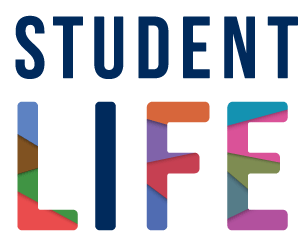Mentorship & Peer Programs Foundations Training is a 6-hour program to help you get the most out of your peer support experience by building your definition of leadership, identifying strengths and finding a community of peers on campus! This program will prepare you to serve as a mentor or peer advisor in a peer support role.
The training covers topics that are common to peer mentors and advisors across the University of Toronto, St. George campus.
Training options
Please note the difference between synchronous and asynchronous sessions:
- Synchronous sessions are hosted both virtually and in-person for the 2023-2024 academic year. Please ensure you note if the session is virtual (via Zoom) or in-person.
- Asynchronous sessions are take-home activities that you can do on your own time.
- Synchronous sessions
Boundaries in Your Peer Support Relationship (2 hours)
- Identify and communicate boundaries.
- Describe how to respond to an urgent situation in an online setting.
Creating an Inclusive Environment (1.5 hours)
- Define an inclusive environment/relationship.
- Determine inclusive strategies that Mentors/Peers/Advisors can employ in their relationships.
Facilitating Groups (2 hours)
- Understand and adhere to policies regarding confidentiality.
- Demonstrate effective rapport building with groups.
- Facilitate a group discussion.
One-on-One Communication and Building Relationships (2 hours)
- Understand and adhere to policies regarding confidentiality.
- Demonstrate effective rapport building in an online setting with individuals.
- Practice active, empathetic listening.
- Practice compassion in conversations.
Academic Skills Starter Kit (2 hours)
- Apply questioning and active listening techniques.
- Explain five major strategies to foster academic success.
- Formulate personalized and suitable suggestions for students to try out.
- Asynchronous sessions
The Mentoring Relationship (30 minutes)
- Describe the scope of the mentoring relationship
Identify, Assist, Refer (30 minutes)
- Describe how to support individuals experiencing significant challenges to their mental health
Knowing Your Resources (1 hour)
- Demonstrate how to find an appropriate resource/referral to meet the needs of mentees
Building Rapport Online (1 hour)
- Understand why it is essential for mentors to work on developing skills regarding building rapport in an online setting.
Creating Group Intentions (30 minutes)
- Understand the importance of setting intentions, either in a partnership or in a group setting.
- Describe how setting intentions allows the mentor and mentee to outline and communicate expectations
Mentorship & Peer Programs Foundations Training is a CCR eligible program. Read the requirements under HOW THE PROGRAM WORKS.
-

Program Eligibility
This training is appropriate for any student who is serving in a peer support role at the University of Toronto, St. George campus.
If you are a student who is interested in the training but do not serve in a peer support role, please contact mentorship@utoronto.ca before registering for any workshops.
-

How The Program Works
To earn CCR recognition, you must:
- Complete and submit a pre-reflection
- Participate in a minimum 5.5 hours of training (including Creating an Inclusive Environment).
- Complete and submit a post-reflection
- Check if there are specific segments you must complete with the coordinator of your mentorship or peer program.
-

Program Registration
Register for the program:
Please log in to Folio to register for Mentorship Foundations Training.
Have questions? Connect with us at mentorship@utoronto.ca.
-

Considerations & Exceptions
Some mentorship programs will host their own mentorship training. To find out if it qualifies as Mentorship Foundations Training for CCR recognition, please email mentorship@utoronto.ca.
-

What Students Are Saying
RATE
US



 12 votes
12 votesThrough the training, a highlight was truly the breadth of realistic case studies covered and the variety of thoughts shared during discussion. It really allowed me to probe my thinking in more than one way and gain a broader perspective on the situations discussed.
Mentorship Foundations Training participant, 2020-2021
I learned more about how to create online spaces that make everyone feel comfortable and welcome. In these challenging times, leading and creating a space that makes people feel engaged and able to contribute meant a lot to me as a mentor. I learned about resources I used to become a better mentor, and have more meaningful relationship with my mentees.
Mentorship Foundations Training participant, 2020-2021





